The ghost Tesco stores
- Published
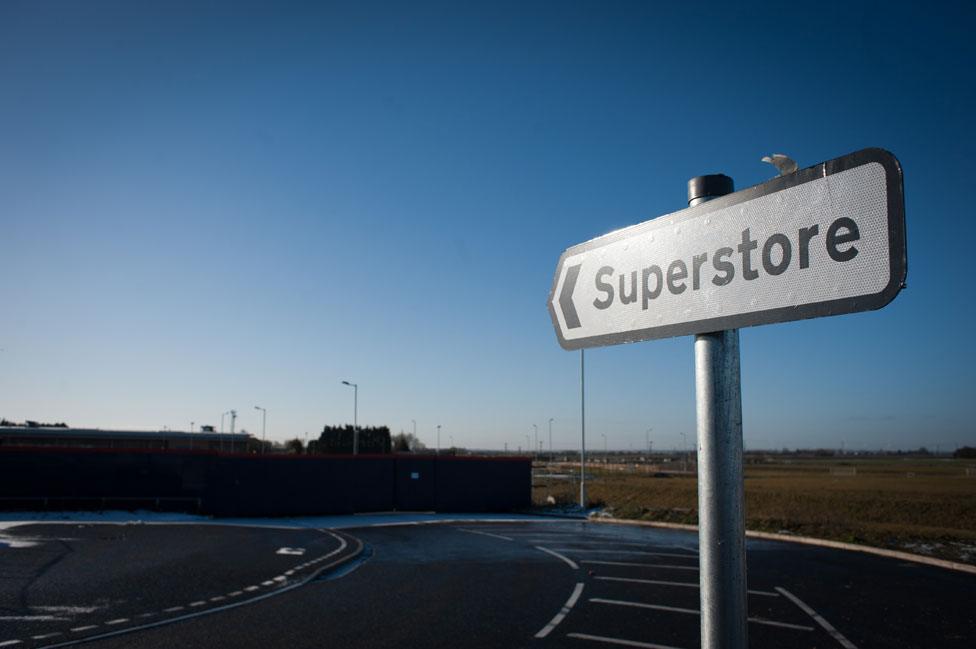
After years of expansion, Tesco has announced plans to close shops across the UK. How do people's day-to-day lives change when their local grocery store shuts its doors?
The brand new supermarket looms above the flat Fenland landscape, its pristine glass and wood facade gleaming in the low winter sunlight.
Something is eerily awry. The freshly painted parking spaces are devoid of cars. Inside, there are no customers filling their trolleys with Finest meals, no two-for-one offers or tills bleeping as they tally up Clubcard points.
There is no logo above the doors, either. The only clue to the building's provenance is the fence that surrounds it, painted blue with red trim. Tesco colours.
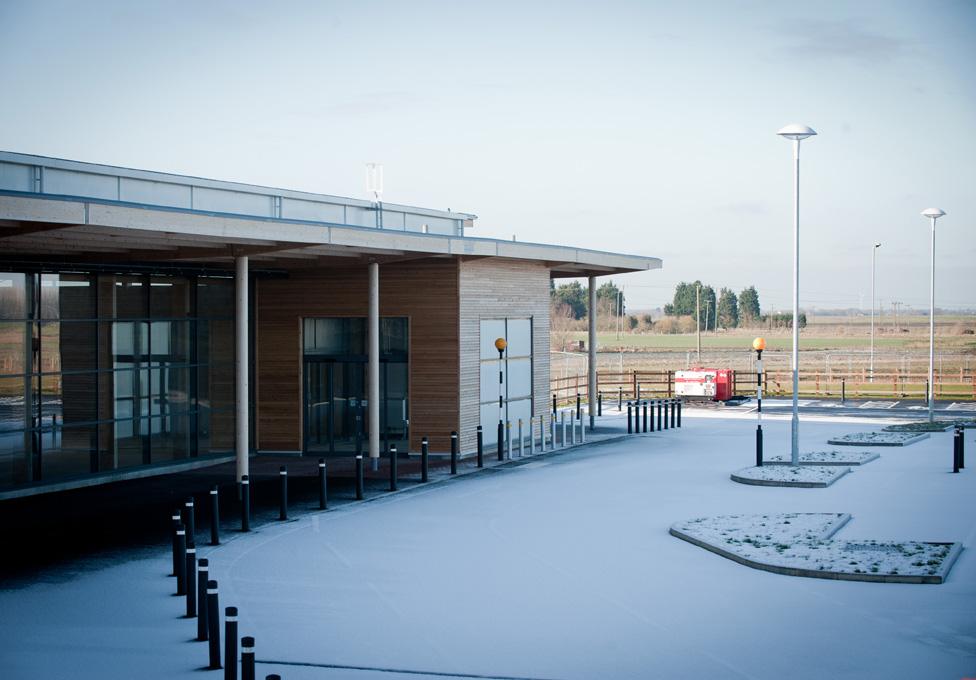
After spending £22m on it, the company announced the site in Chatteris, Cambridgeshire, will be mothballed, external - one of 49 planned stores across the UK to be cancelled, with a further 43 existing outlets due to be shut down, external.
It was jarring news for many Britons who, in recent decades, have come to associate the firm with market dominance and unyielding expansion.
For years, community groups around the country staged protests against the homogenisation and bland uniformity allegedly wrought, external by Tesco's exponential growth at the expense of independent traders. There was even a name for this process - Tescofication, external.
Now the trend has been decisively reversed. Following a decline in market share (still a hefty 29%) and accounting scandal, the advance has been halted. The company has said it will make cuts of £250m, reduce overheads by 30% and close its staff pension scheme.
But in Chatteris the talk isn't of Tesco's boardroom strategy or share price. It's a more prosaic concern. Where will everybody shop now?

"We don't want it to sit there and become derelict," says Alison Cotterill, 54, herself a former Tesco employee, whose home overlooks the site. She would rather it had been an Asda or a Morrisons in the first place, to provide a bit of competition - there's another Tesco supermarket nine miles away. "But it would have been good for the people of Chatteris. There would have been more part-time jobs."
Tesco hopes, external a competitor will buy the empty building. But the impact of the decision is already being felt. Chatteris's other supermarket, a Co-operative, has announced, external it is closing down, to be replaced by a branch of Aldi. There's a Budgens convenience store on the High Street, but anyone wanting to shop in a full-sized, non-discount supermarket will have to drive to the next town.
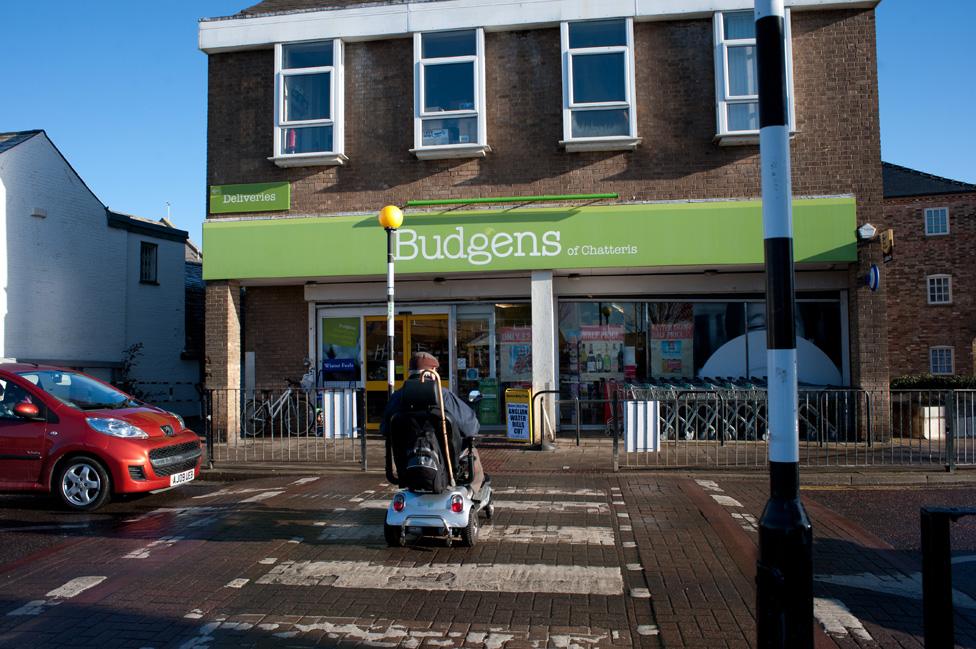
There are other unintended consequences, too. Some 250 new Tesco jobs were expected for Chatteris, which has a population of 10,000. As part of the development a river bed was moved, a new roundabout was installed and a pedestrian underpass was built. Unused and neglected, the latter has now attracted "undesirables" and graffiti, complains local councillor Florence Newell.
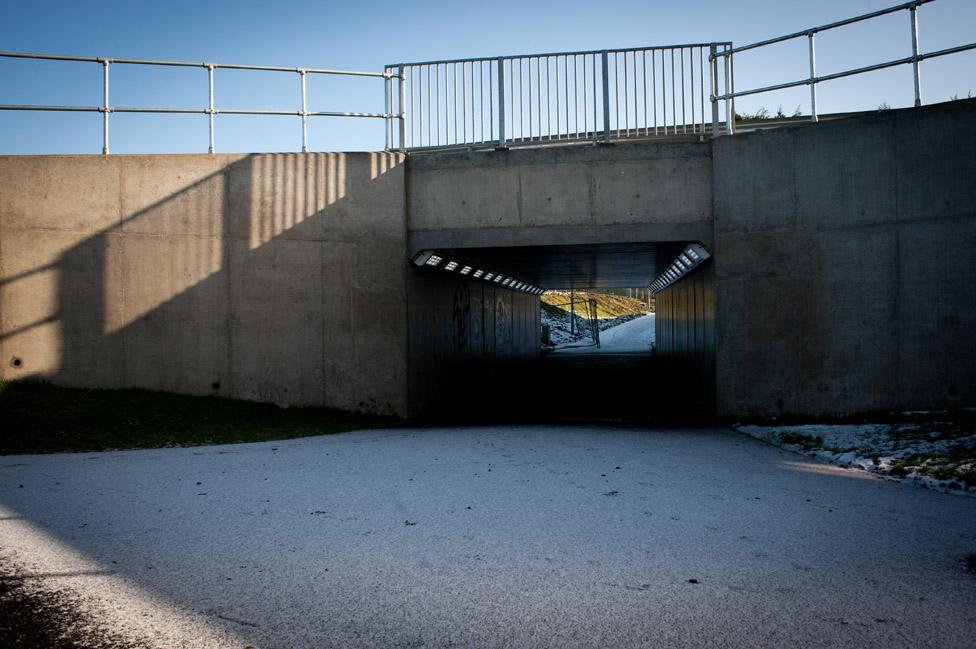
Tesco is capable of provoking strong emotions. There were riots when the chain opened an Express branch in the bohemian Stokes Croft district of Bristol. Although the store survives, a mural urging shoppers to "Think Local" and reject the chain is still proudly displayed, external in the area.
Conversely, when it was announced that the Tesco superstore in Kirkcaldy, Fife, would close, it was standing room only, external at a public meeting called to try and save it. The event was addressed by no less a figure than the local MP, former Prime Minister Gordon Brown.
Kirkcaldy's Tesco, situated in the middle of the town, houses a post office and is the focal point for the main taxi rank. It's on a bus route, which makes it the easiest store to access for many pensioners. Local traders told the meeting they feared a decline in town centre footfall if it shut.
"It's like a community hub. When the customers come in they know the staff, everyone's on first-name terms," says Tom Adams, 58, who works the 04:00 to 10:00 shift, affixing shelf edge labels at the store, as well as serving as a Fife councillor. His wife and daughter are employed by Tesco, too, and the impact on the branch's 189 jobs - many of them part-time - is a major concern in the town.
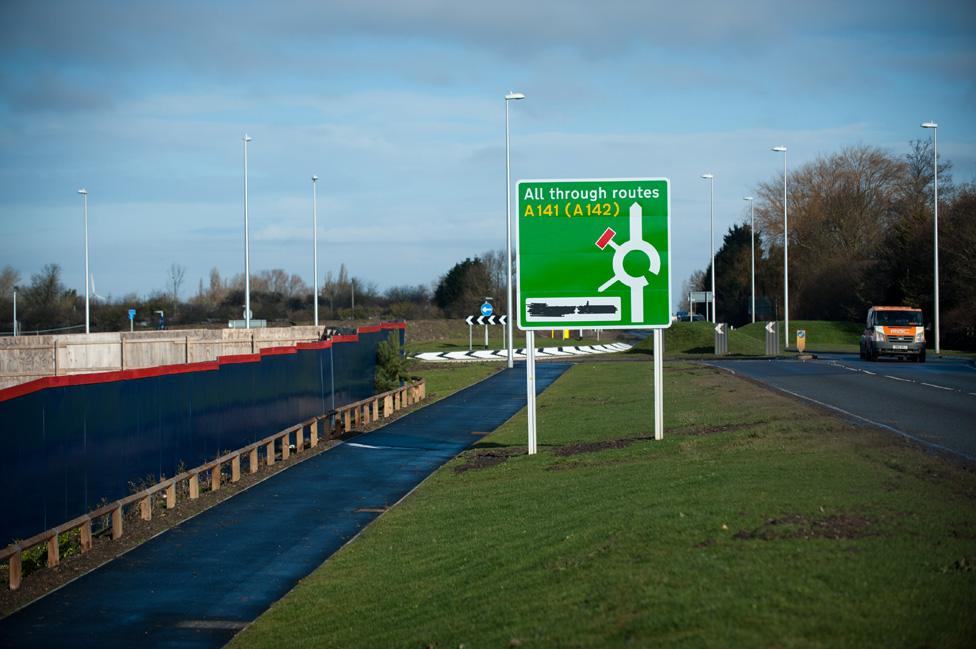
In other places, the effect will be less dramatic, says retail analyst Matthew Hopkinson, director of The Local Data Company. Many of the closures are in "fairly marginal locations", places that are already well catered for by supermarkets.
For instance, a Tesco will be closing in Bedlington, Northumberland - a town where there are currently eight food stores, equating to 1,925 customers per store, he says. Bicester, which has been told it will lose a Tesco Metro, also has a Tesco superstore as well as four Tesco Expresses.
But some communities are less well served. In Runcorn, Bootle and Doncaster, all of which are set to lose stores, retail vacancy rates are above 18%, Hopkinson says.
Some shoppers will find themselves marooned, according to Ian Clarke, dean of the University of Edinburgh Business School and a former Tesco strategy consultant. "It's customers in smaller towns. Particularly if you are not mobile, if you don't own a car, if you are elderly, less affluent, deprived."
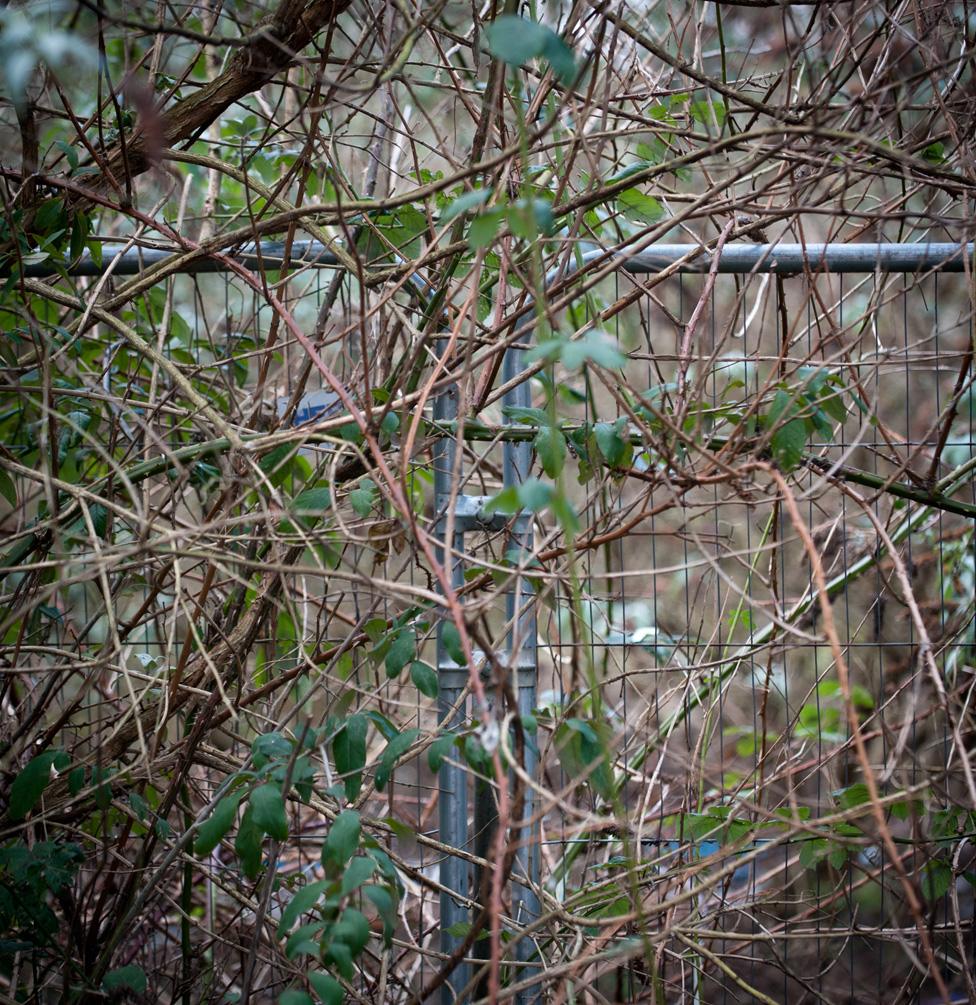
However people feel about them, supermarkets commonly become centrifugal forces around which towns revolve and an integral part of residents' weekly routine. Closing one can have a major impact on people's lives.
"If you went back five years when they were announcing they were opening new stores, everyone was up in arms saying it's going to hurt the town," says Hopkinson. Now, he says, council leaders in areas affected by closures are asking: "What am I going to do?"
For many local authorities, the era of Tesco expansion was an opportunity to secure Section 106 agreements, external - deals between a developer and council, which, in return for planning permission, can help fund affordable housing, roads and schools.
The problem now is that many of the Tesco developments on which town hall leaders had staked regeneration plans have been cancelled. These include schemes to redevelop the town centre in Kirkby, Merseyside (where previously Tesco's plans to build a complex alongside a new stadium for Everton FC were rejected by the government in 2009) and the former Royal Hospital in Wolverhampton, West Midlands.
But developing a supermarket is a lengthy process. In some cases it can take over a decade to secure the land and win planning permission before construction even starts. In that time, local demographics and market conditions can change dramatically, as can retail habits - as they have across the UK in recent years, towards a greater preference for smaller outlets and online shopping.
Nowhere is this more starkly illustrated than in Dartford, Kent. Rows of empty, crumbling shops along the once-bustling thoroughfare of Lowfield Street sit boarded up.
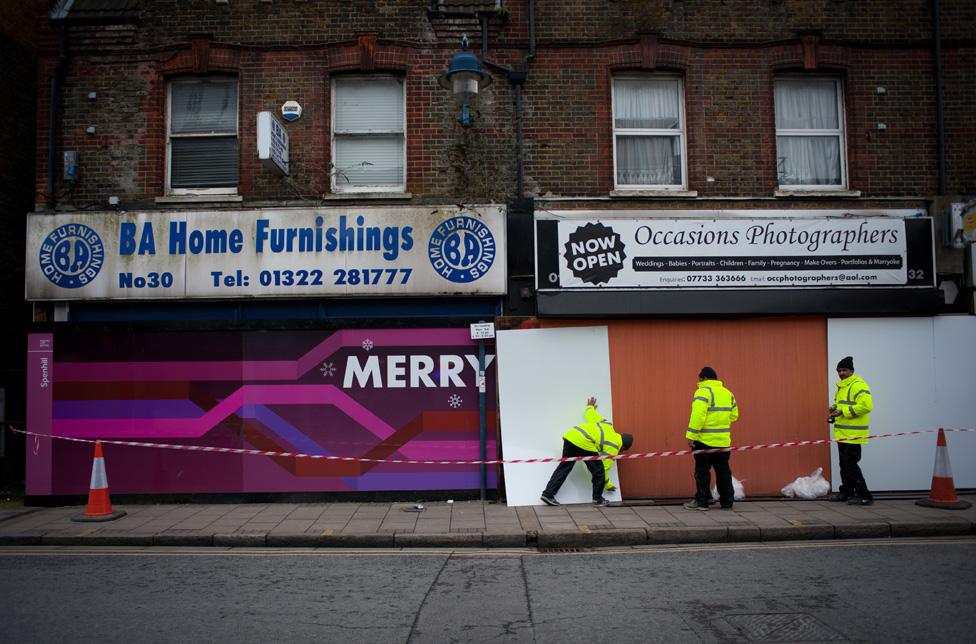
This was supposed to be, external a vast 24-hour supermarket, surrounded by hundreds of new homes.
Instead, one side of the road lies derelict. Litter piles up on waste ground behind a perimeter fence. Signs above the empty buildings that haven't yet been pulled down are testament to businesses that once traded here.
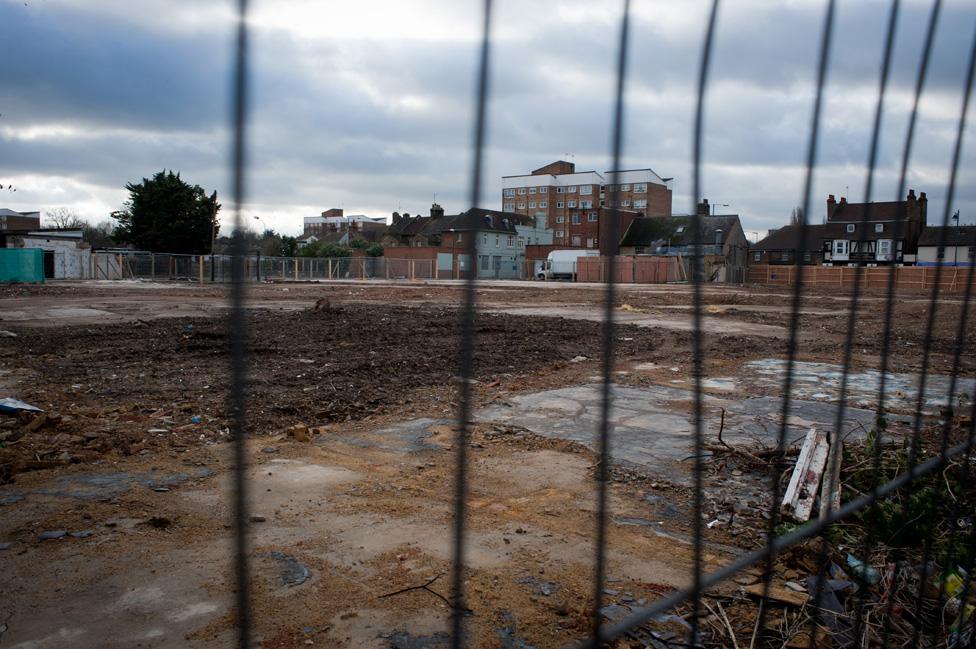
Tesco's scheme was first proposed in 2002. Early plans were rejected in 2006. After years of wrangling, permission to build a 100,000 sq ft supermarket and flats in Lowfield Street was granted in November 2011. The plans were scaled back. Finally, demolition work began. Soon after came the announcement that Tesco wouldn't be opening here after all.
"Before, it was fantastic," says James McCarthy, owner of Old and New, a second-hand shop that is one of the few remaining businesses still trading on this side of the road. "It was a thriving little community, really good little independent shops. We just sit here looking at the door now. We are sitting here doing nothing all day."
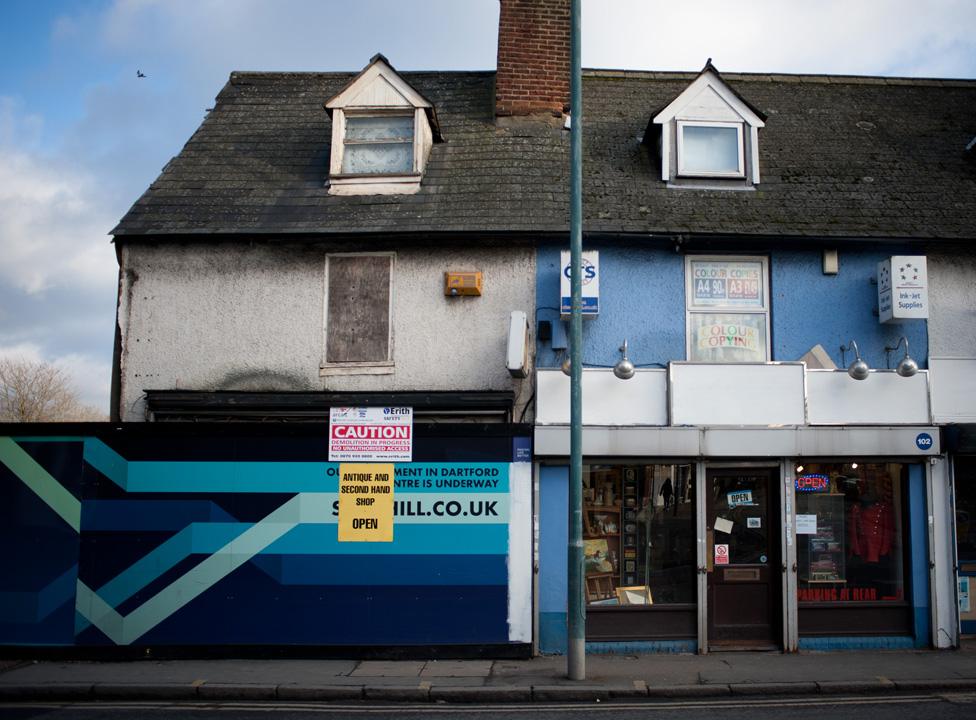
Behind the shop, Ray Richardson, 58, feeds geese on an acre of land he still owns where the Tesco was supposed to have been built. He once ran a butcher's shop on Lowfield Street that had been in the family for three generations since 1908. But it was pulled down after he reluctantly sold up in the belief that the supermarket scheme was a fait accompli.
"I have basically been forced into unemployment," he says. "I would have kept going. My father died at 82, he was still working. My grandfather was over 80 when he packed up."
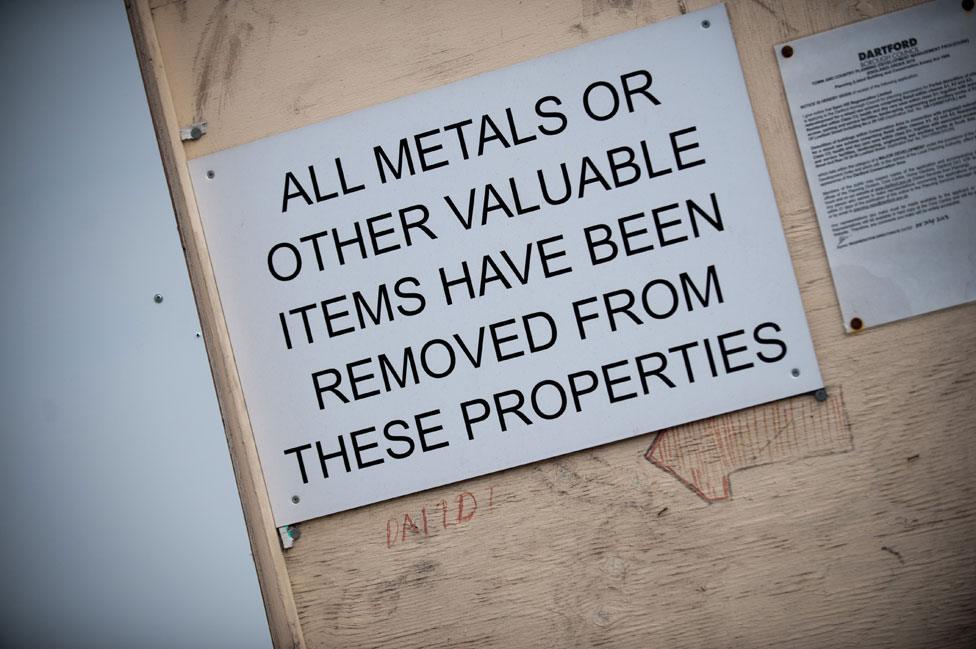
A Tesco spokesperson says the company is proud to be part of communities across the UK, and it was "with great sadness" that "extremely difficult decisions" had been taken to close stores and halt developments in order to protect the future of the business for its 300,000 employees.
The spokesperson adds: "Where we are closing stores, our priority is to provide every support to affected colleagues and wherever possible, offer them alternative roles with Tesco. Where we are no longer progressing stores, we are working closely with local councils to find the right solution for each site for the local community."
Now Chatteris, Dartford, Kirkcaldy and other towns around the UK must adjust to life after Tesco. But even without a supermarket, the chain's presence in these places is still inescapable.
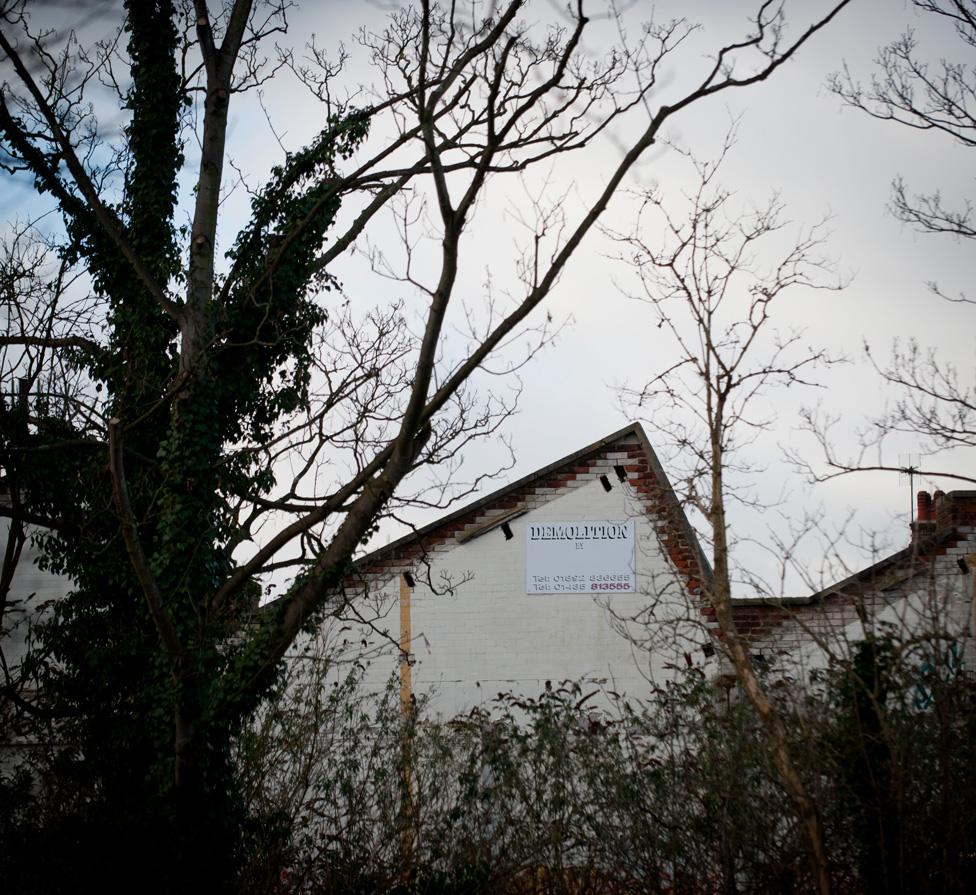
Photographs by Phil Coomes
Subscribe to the BBC News Magazine's email newsletter to get articles sent to your inbox.